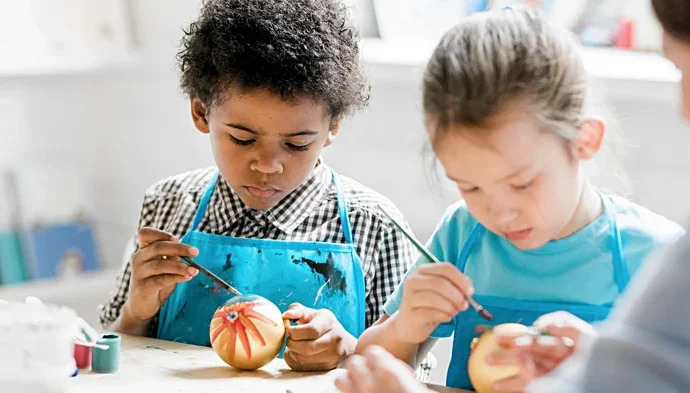
Is there a skill that children should master more than listening and focus? A child’s survival and well-being are entirely contingent upon their ability to adapt to their new environment.
For both them and us, hearing and seeing are amazing new talents when they are infants. It was so much pleasure to watch your baby learn to recognize your voice, respond to your facial expressions, and turn around when you called their name. They loved it, so you didn’t have to teach them!
But for some reason, when newborns begin to move around and grab objects, knock things over, and so on, they get used to being able to ignore us and their innate attentiveness wanes.
It’s funny how quickly they can crawl away when we call for them to stop putting things in their mouths or getting into things we don’t want them to. At first, this is kind of cute. It’s an activity! If you can, come get me!
But as they become older, if they don’t learn to pay attention, they won’t only be unable to study, but they’ll also find themselves in difficulty with employers, instructors, parents, and other authority figures. Furthermore, they will lose out on subtleties of communication that can only be developed when we practice actual attentiveness with our eyes, hearing, and posture in addition to instructions and requirements.
In my experience as a teacher, the brightest pupils weren’t always the ones who would do the best; rather, the best learners were those who paid attention, obeyed directions, and listened to me. They did not receive a failing grade for not heading their papers correctly, for turning in assignments after the deadline, or for asking the same questions over and over again.
So How Can We Assist Our Children In Acquiring And Honing This Crucial Skill?
Here are three easy and enjoyable activities that any parent may undertake to help their children become more attentive:
Tell them tales. Naturally, reading to your children is very important. However, when you tell them a story—whether it’s one you made up, a well-known fairy tale, or something that happened when you were a child—you are looking them in the eye, adding your own expressions, and they are completely engaged. To test how well kids listen, you can retell well-known stories with minor facts changed or omitted. See if they can catch you off guard!
Ask them to sketch a picture of a nursery rhyme, tale, or little poetry that you have read. This one I read this morning would be ideal:
“Thou tellest my wanderings; put my tears into thy bottle: are not these things noted in thy book?”
What a powerful verse! The outdated speaking patterns shouldn’t scare you; it’s just another chance for them to listen! As you read the verse aloud, ask children to picture their “wanderings”—that is, to picture God being so concerned about our suffering that he records our tears in a bottle and keeps a journal for them! Asking kids to visualize and sketch this kind of stuff will change the way they listen, make language more relatable to them, and inspire new ways of thinking and writing. The illustrations of different verses drawn by my own children are among my most valued mementos.
Speak softly. When I would periodically have laryngitis from too much lecturing, I was always fascinated at how my pupils would react; when I had to whisper, everyone had to be quieter and pay closer attention. Whispering is a far more successful way to encourage your kids to listen than yelling, therefore I’d recommend trying it occasionally.
We could all use more practice paying attention because there is so much miscommunication and talking over each other in our daily lives. Try speaking less, making eye contact, trying to understand what people are saying, and paying attention this week.
